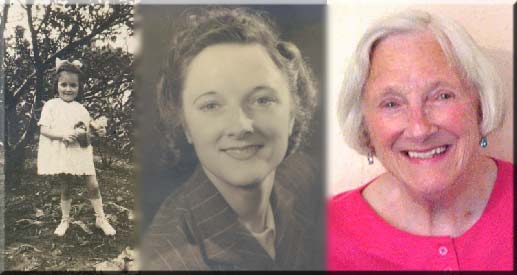As 1940 came in, heavy falls of snow, the Talke road was blocked for a time, and then when a way was cleared, high walls of snow were piled up at either side with ‘passing places’ cut into them. Bombing raids on Manchester resulted in vast quantities of bomb-damaged goods.
Tins of all sizes, some with no labels, some with partially burnt labels, lots of them were Heinz soups but it was very much a lucky dip at sixpence a tin. The rations per person per week were, eight ounces of sugar, two ounces of cooking fat, four ounces of margarine, two ounces of butter, two ounces of cheese, two, sometimes four ounces of bacon and one egg, three ounces of soap, (small tablet) two ounces of tea. Biscuits were scarce and inferior in quality; they were on points as were most canned goods. The tea coupons and pages of points were at the back of the ration books. You could use these at any shop. It was quite amazing how many books had these pages ‘chewed by the dog’ or even by the baby, sometimes they had accidentally fallen on the fire, ‘you can just see the edge of the page all charred where I had to tear it out’. Then they went to the Food Office for new pages. Who could blame them, if they had the nerve?
Shaving soap was not rationed and we used it to wash our hair. Fortunately I had friends in some of the chemist shops and was able to get a reasonable supply of cosmetics and perfume. I’ve had a lifelong love affair with perfume. I could not afford the very expensive kind, but ‘June, Seventh Heaven, Evening in Paris, (in a blue and silver bottle), Mischief in a black and silver bottle, Goya No.5 ~, Morny Pink Lilac, and French Fern, were all very delightful. Some Airmen were stationed in the area, and one, Ernest Guy used to come into the shop to talk to me. When he was off duty, perhaps for a morning he would join one or two of the umpteen queues that were everywhere. People stood for hours literally, queuing for some item in short supply. Ernest did very well one morning; he got fully-fashioned stockings from Marks and Spencer and Coty powder from Boots. He was very pleasant and good tempered and seemed delighted to bring me the results of his morning ‘standing around’ we sometimes went to the pictures, and though he was a pleasant companion, the feeling was on his side not mine. He never seemed to be short of money, his parents had an hotel on the South coast so perhaps they looked after him in that way. When he was posted he wanted me to write to him, and I did for a while. I sincerely hope that he found happiness eventually.
I often went to Crewe Theatre with the stage managers wife, (free tickets), then stayed the night with them. They rented a little house near Christ Church in Crewe. They were Nora and Joe, they had come from London and although they were glad to be away from the air raids I don’t think they felt settled in Crewe.
September 1940 saw very heavy raids on London and other large towns. It was said that 300 bombers and 600 fighters flew over in one raid, the devastation; such as we were allowed to see on the newsreels, was terrible. Toolev Street in the East End became famous for its ‘cockney spirit’ and wit. Later that month Buckingham Palace was bombed, provoking the remark made by the Queen, “Now I feel as though I can look the East Enders in the face.” In October the B.B.C. was bombed, and Bruce Belfrage the announcer calmly carried on reading the news while all hell was breaking out. No wonder the British have a reputation for a stiff upper lip! We had a few evacuees from Liverpool, in Alsager. They came on the Friday and I don’t think many stayed more than a week. It was said that they came from the ‘Scotland Road’ area.
There were as many adults as children and I don’t know who suffered the greater shock, them, or the people they were billeted with. They arrived in pumps and pinnies, speaking a strange language, and in some cases it was said, ordering their hosts to “fetch us some beer and fags”.
Christmas 1940 was very quiet and subdued as far as ‘festivities’ were concerned. The war news was not good.
